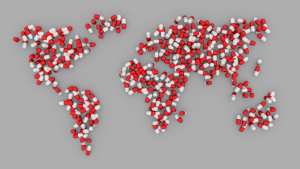
 Although CBD is one of the most used cannabinoids for medicinal purposes, the evidence about the dosing of CBD-based products (starting dose, up-titration protocol) is scarce. Following the approval of Epidiolex by FDA, we have a better understanding of the effective dose and up-titration schedule for epileptic patients, however, it seems that Epidiolex dosing schedule cannot be applied to other therapeutic areas such as pain, inflammation, and psychiatric disorders.
Although CBD is one of the most used cannabinoids for medicinal purposes, the evidence about the dosing of CBD-based products (starting dose, up-titration protocol) is scarce. Following the approval of Epidiolex by FDA, we have a better understanding of the effective dose and up-titration schedule for epileptic patients, however, it seems that Epidiolex dosing schedule cannot be applied to other therapeutic areas such as pain, inflammation, and psychiatric disorders.
Millar et al. did a systematic review of the doses of CBD in clinical studies to address this question. They reviewed 35 studies in 13 medical conditions and CBD was generally well-tolerated; however, the plasma concentration was not reported in any studies. Two-third of studies reported a significant improvement in the primary outcome, with a dose ranging from 1-50 mg/kg/day. The wide dose range indicates that the effective dose of CBD may vary depending on the clinical condition. For instance, it seems that the lower doses are needed for patients with inflammatory conditions compared to patients suffering from epilepsy or psychosis. This phenomenon is not unique to CBD and has been reported for other drugs. For instance, Aspirin demonstrates anticoagulation properties in lower doses (81 mg) and anti-inflammatory effects in higher doses.
This review indicates that we need more data about the pharmacokinetics, bioavailability and dose-ranging studies to be able to use CBD more effectively for medicinal purposes. With several registered phase III clinical trials, we will hopefully have more information in those areas in the coming years.
You can find the full text of the study .















